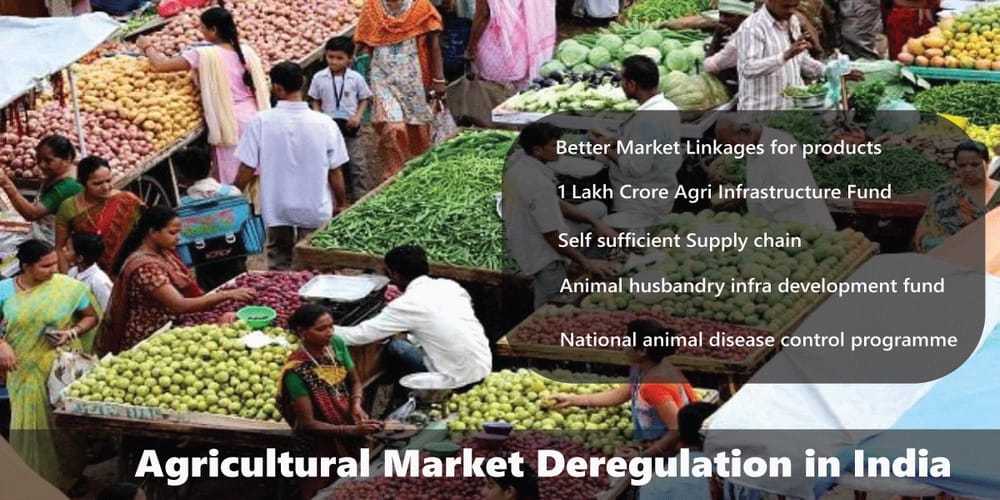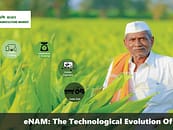Agricultural Market Deregulation is a widely suggested strategy to make agricultural markets efficient. India has successfully established itself as a food sufficient nation. In fact we have been a net exporter in major agricultural products. However, the ground realities indicate less than satisfactory income for farmers on account of a lack of investment in cold storage, warehouses, processing etc. This lack of investment is attributed to a lot of government regulations in the transaction of agricultural products. The Indian agricultural sector has been subjected to a host of restrictions hindering the marketing and price realization of the products.
In June 2020 As part of the COVID-19 package, the Finance Minister announced on three major agricultural policy reforms: (i) Essential Commodities Act relaxation for major cereal, edible oil, pulses, onion and potato; (ii) Agricultural Produce Market Committee (APMC) reforms with a Central law for One Nation, One Market; (iii) a Central law to regulate new channels of direct purchase and contract farming outside the APMCs in lieu of Agricultural Market Deregulation in India.
As per the Essential Commodities Act (ECA), 1955 was established to ensure the supply of essential items that impact the normal life of people and avoid hoarding and black marketing of these essential commodities. These items include drugs, food grains, edible oils, petroleum and petroleum products. Under the recent amendment to Essential Commodities Act, cereals, pulses, oil seeds, edible oil, onion and potato have been exempted from its regulation, and a processor or exporter is allowed to stock up to the installed capacity of the plant.
The Farming Produce Trade and Commerce (Promotion and Facilitation) Ordinance, 2020, is expected to pave the way for “One India, One agriculture market”. This ordinance aims to create barrier-free inter and intra States trade, allowing buyers to purchase directly at the farmer’s doorstep. This transaction would not require a buyer’s license and the trade would be tax free. This major reform has given a more free hand to the buyers with farmers getting better prices for their produce due to uplifting of state boundary restriction.
The Agricultural produce market committee model has been an epitome of license raj and regulation raj that promoted middleman culture in agricultural transactions leading to lesser flow of revenue to the farmers. Farmers could sell the products to only licensed middlemen at Agricultural produce market committee Mandi who would further sell the product at higher prices to urban wholesalers. With the host of amendments around deregulation of markets, farmers can have a better income.
FocusAgritech’s Outlook on Agricultural Market Deregulation:
The recent deregulation measures are a welcome step for improving farmers’ income. However, the technological and infrastructural support should be provided to the farmers for better market intelligence. Nationwide E-NAM (National Agriculture Market), an e-trading portal, should be upgraded to keep farmers updated about the prices of commodities at various locations. Mobile application for real time price tracking similar to ITC’s e-choupal initiative can be a great way to ensure our farmer community is empowered with information and are in a better place to negotiate with the buyer.
Recent Article
Transitioning to Traditional Ways through Crop Rotation







